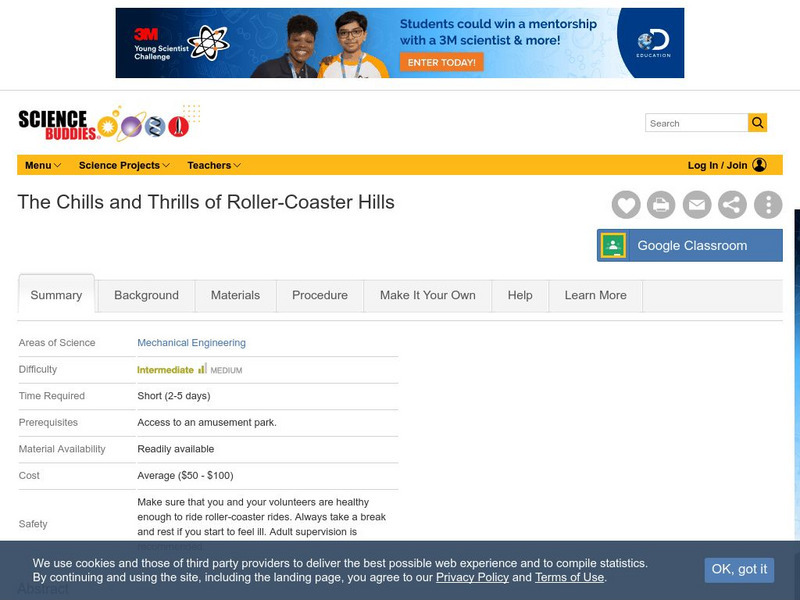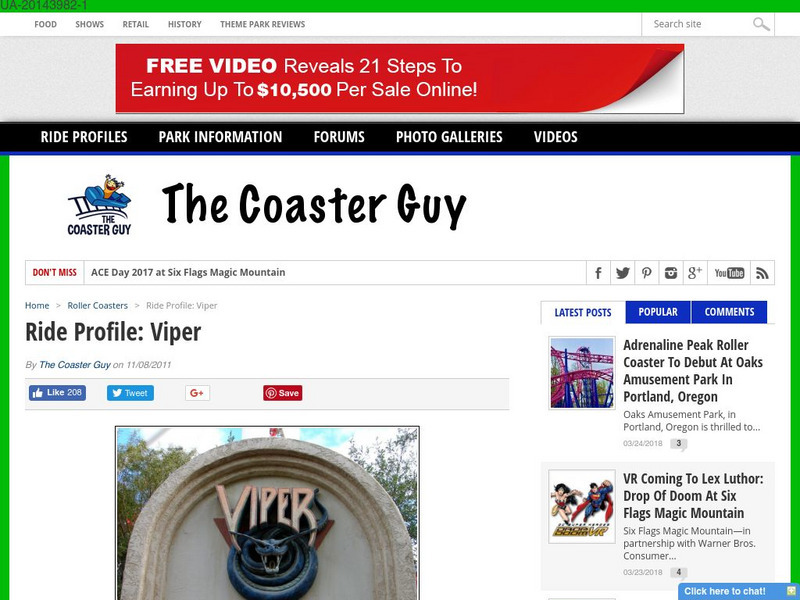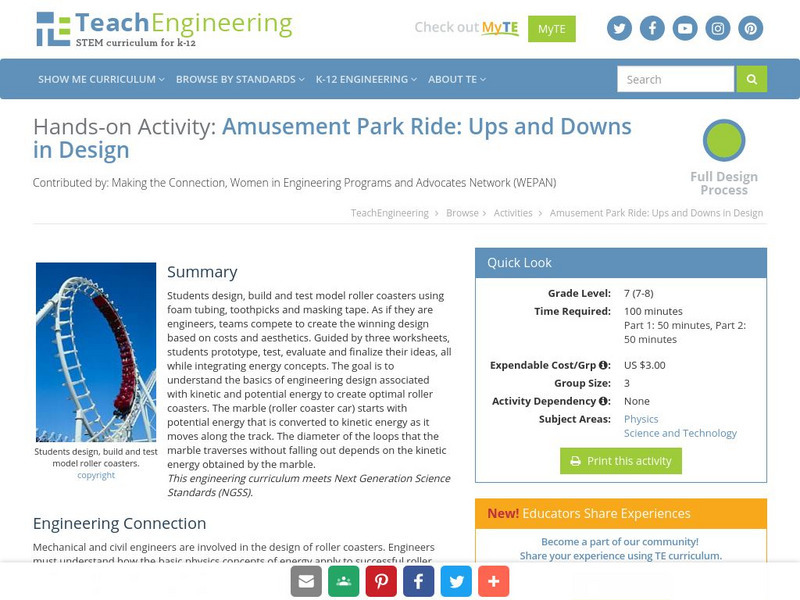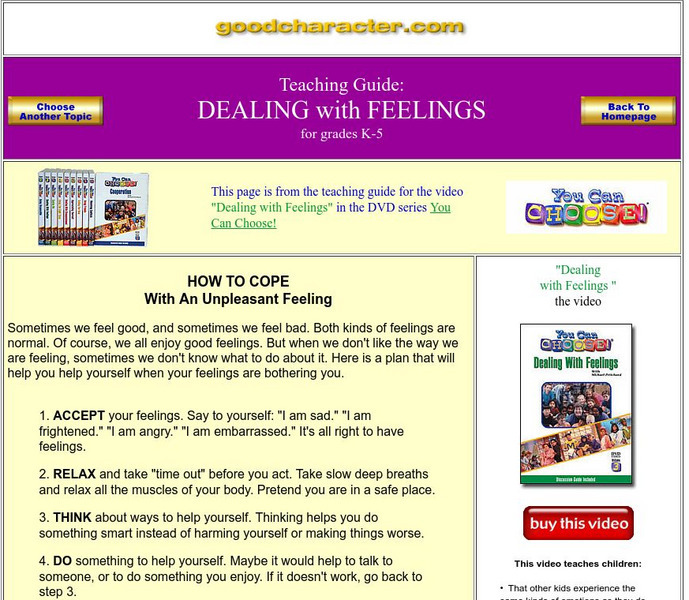Science Buddies
Science Buddies: Roller Coaster Marbles: How Much Height to Loop the Loop?
This is a really fun project even if you don't like going on roller coasters yourself. You'll build a roller coaster track for marbles using foam pipe insulation and masking tape, and see how much of an initial drop is required to get...
Science Buddies
Science Buddies: The Chills and Thrills of Roller Coaster Hills
Lots of people enjoy roller coasters, but not many understand why they feel the strange excitement they do when riding them. In this science fair project, you will build and use an accelerometer to figure out and measure gravity-induced...
Science Buddies
Science Buddies: Paper Roller Coasters: Kinetic and Potential Energy
In this instructional activity, your students will learn about kinetic and potential energy as they build their own roller coasters from simple classroom materials.
Utah Education Network
Uen: Trb 3:4 Investigation 4 Roller Coaster Fun
Third graders will design and build a roller coaster to help understand gravity.
Utah Education Network
Uen: Tubularastic Roller Coaster
Third graders will understand the effect of gravity on objects.
Other
The Coaster Guy: Six Flags: The Viper
Learn facts about this popular Six Flags roller coaster. Also includes a collection of images.
Annenberg Foundation
Annenberg Learner: Amusement Park Physics: The Principles of Free Fall
An article describing free fall principles in roller coaster rides. In addition to the explanation of free fall, an experiment is described that allows you to test free fall with a cup of water. Part of a larger presentation on roller...
Science Buddies
Science Buddies: Centripetal Force
What keeps you in your seat of a giant loop-de-loop roller coaster? Surprisingly, it is not the seatbelt but the seat. It works because of something called centripetal force and it does much more than make a great roller coaster. In this...
TeachEngineering
Teach Engineering: Amusement Park Ride: Ups and Downs in Design
This unit has students design and build foam tubing roller coasters. The design process integrates energy concepts as they test and evaluate their designs that address the task as an engineer would. The goal is for students to understand...
TeachEngineering
Teach Engineering: Kinetic and Potential Energy of Motion
In this lesson, students are introduced to both potential energy and kinetic energy as forms of mechanical energy. A hands-on activity demonstrates how potential energy can change into kinetic energy by swinging a pendulum, illustrating...
Live Wire Media
Good Character: Dealing With Feelings
Learn how to cope with unpleasant feelings, and to teach young students how to deal with their emotions.
Other popular searches
- History of Roller Coasters
- Paper Roller Coasters
- Physics of Roller Coasters
- Physical Roller Coasters
- Roller Coasters Math
- Wooden Stella Roller Coasters
- Wooden Stell Roller Coasters
- Roller Coasters Safety
- Physics Roller Coasters
- Wooden Steel Roller Coasters
- Building Roller Coasters
- Roller Coasters Rap Song








